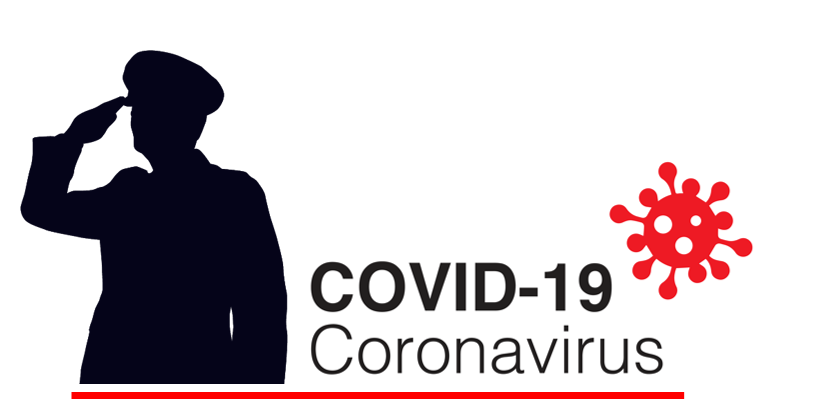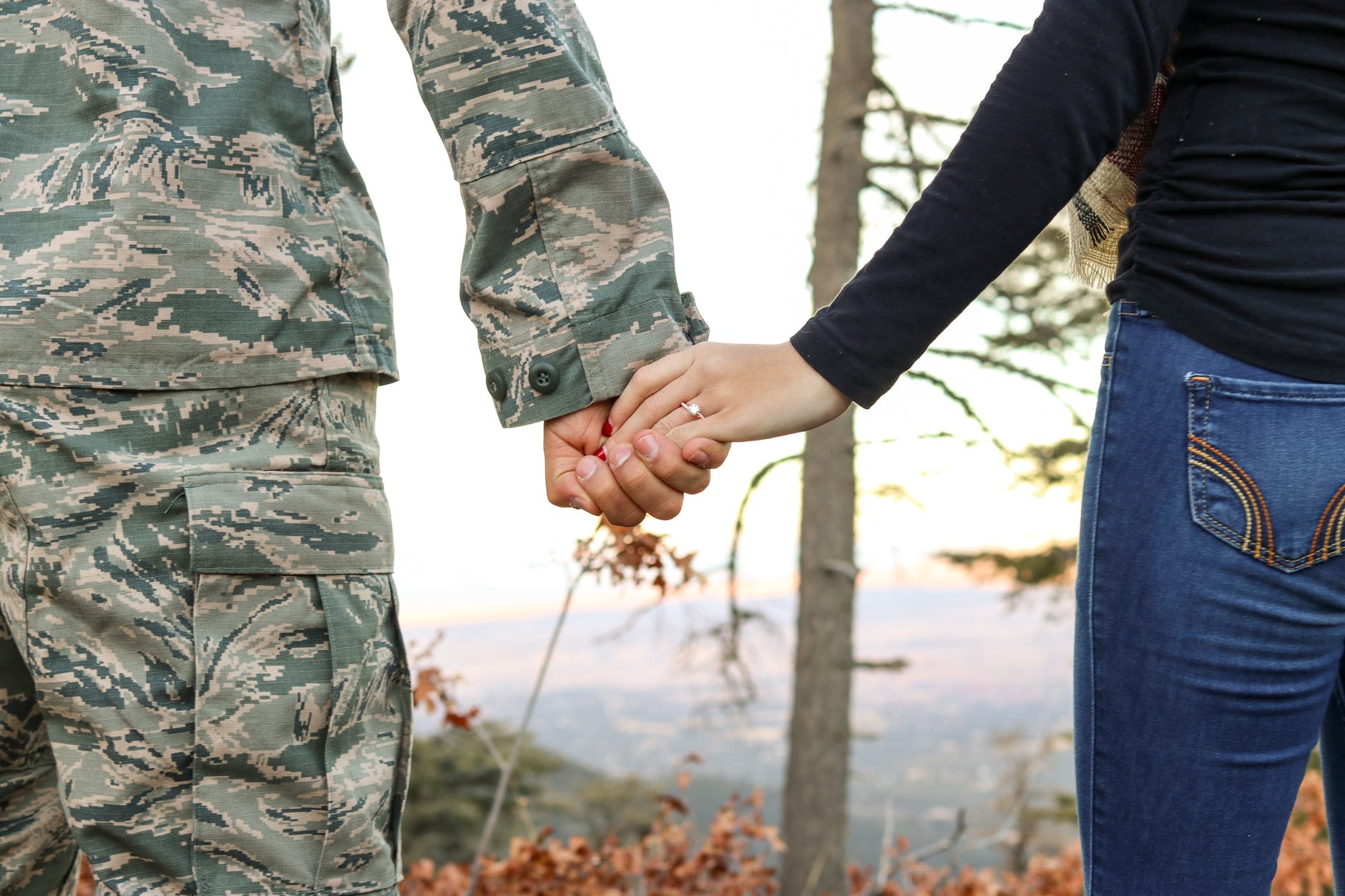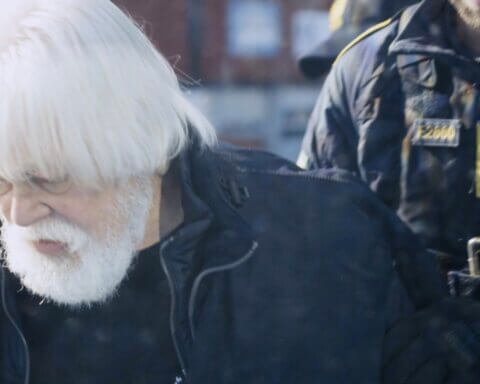*Too many veterans and their families aren’t mentally, emotionally and spiritually prepared for the difficult days ahead. Since the spread of COVID-19, we’ve heard from hundreds of military families who are afraid – not of catching a virus – but of the long term damage this crisis will have on their lives.
They’re afraid they’ll turn to older ways of coping with their challenges as the stress of this crisis looms over them. Many nationwide closures have affected support groups such as alcoholics anonymous (AA), and other key outpatient services due to government action to limit large gatherings. People are overwhelmed with financial buckling, uncertainty, school cancellations affecting their children, and being closed off from normal routines.

Understandably, veterans and their families are feeling stir crazy and stress levels are skyrocketing. This is a more collective set of stressors and the general, national anxiety that weighs on the hearts and minds of veterans even more than the rest of us. Sure, we can handle this stress in the short term, but what is the breaking point for our more high-risk citizens — our veterans?
Mark my words – the greatest threat to our military families during the COVID crisis isn’t a virus, it is reversion to older coping mechanisms and a pattern of invisible self-destruction, which is much more natural of a risk in a time of crisis. We must be prepared to remedy this with the knowledge we have regarding this special group of citizens and serve them appropriately.
The harsh reality is: the natural response to crisis and trauma is often just as damaging as the trauma itself. In other words, the things we do to cope with the incremental and increasing stress will make our lives worse, instead of better. What seems like a parachute to stop our downward spiral will turn out to be an anvil that pulls us down faster. Marriages can falter, depression can descend and suicidal ideation can and will come knocking.
I have learned over the years of working directly with our military families that pitfalls can be avoided if we identify the warning signs and adapt accordingly.
The greatest threat to our military families during the COVID crisis isn’t a virus, it is reversion to older coping mechanisms and a pattern of invisible self-destruction, which is much more natural of a risk in a time of crisis.”
Here are the two key areas to monitor and what we can do to help:
Denial
In the beginning, many of us chalked up the perceived “crisis” of COVID-19 to media hype and hysteria. We denied the warning signs and turned a blind eye. But by now, we’ve realized that it isn’t going away any time soon, as our routines have been turned upside down. We can’t go to where we used to go and do things we used to do.
But while we’ve acknowledged the changes COVID-19 has made to our normal rhythms, we must also accept its impact on our environment and relationships. Stress levels are higher, money is tighter and we are on top of each other trapped in our homes with no end in sight. All of these factors expose our vulnerabilities and aggravate existing symptoms, making life even more overwhelming. But rather than face these added complexities, most of us deny them in hopes that they will just pass.
This denial isn’t driven by stupidity or ignorance. It is merely a reaction to the inconvenience of our new reality. Denial happens when our “crisis reality” seems too complicated, confusing or chaotic to fit into our lives. Because to feel any part of it – is to feel all of it and that is totally overwhelming. So instead, we strive to preserve reality as we remember it, rather than adapting and moving forward.
But denial doesn’t bring about healing and so our symptoms will continue to increase. Instead of feeling anxious, we have panic attacks. Instead of anger, we fly into fits of rage. Eventually, our innate coping mechanisms can no longer hold our growing emotional, mental and spiritual unrest at bay. We need reinforcements – so we turn to painkillers.
Numbing
We try to numb ourselves. We demand more or stronger prescription medications. We turn to old addictions that promise to help us forget the pain that we’re feeling. We drift off into a lifestyle of distraction, fantasy or escapism. Alchohol, pornography, shopping, video games, and workaholism distract us from facing what’s really going on in our lives. And as with any numbing agent, the effectiveness wears off over time. So many of us are tempted to run. We may begin hearing voices that tell us to flee from our problems, leave our families or escape through suicide — anything to get away from the pain.
A Productive Crisis
Instead of denying, numbing or running, we can choose a better path – one that can transform this time of stress into a productive (rather than destructive) crisis.
We begin by acknowledging what has been lost. Crisis always causes loss – but the problem is that most of us don’t deal with this very well. We want things to go as expected and when they don’t – it hurts. That hurt we feel is called grief, when our picture of the future changes without our approval. It is fair to say that for thousands of military families, COVID-19 has changed their lives without their approval. Failing to acknowledge and grieve what has been lost can wound us deeply and cause anxiety, depression and anger. So it is imperative that we name our losses and engage these emotions head-on. Pretending like nothing has changed won’t help us.
Loss isn’t the enemy – not facing it is.
But beyond accepting the loss, we must accept support. When we think of support we may picture people who cheer on our every decision and tell us how awesome we are. That isn’t support – it’s enablement.
Instead we must open ourselves up to scrutiny from those we trust. We must humble ourselves and invite others into our lives. Long term recovery is more about embracing a life of transparency and humility, than it is completing a series of steps. So if you have struggled with emotional, mental or spiritual health issues in the past, reach out to people who can help you during this season. Let them know you are struggling and need support.
We can embrace the challenge, identify warning signs, and apply natural and effective remedies that work. For those of us serving the military community now is the time to stay alert and be available to serve our military families.
•••••••••••••••••••••••••••••••••••••••••••••
Evan and Dr. Jenny Owens

About the Authors
Dr. Jenny Owens
Dr. Jenny Owens is the Co-founder and Outcomes Director of REBOOT Recovery. REBOOT Recovery is 501(c)3 non-profit that helps veterans, first responders and their loved ones heal from the moral and spiritual wounds associated with service-related trauma. Jenny is an occupational therapist and has previously worked for the Department of Defense treating active duty soldiers with traumatic brain injury and post traumatic stress. Jenny specializes in neurocognitive and psychosocial rehabilitation as well as return to duty evaluation. Jenny has contributed to numerous occupational therapy publications including the mTBI Rehabilitation Toolkit (2015), TBI Interventions to Support Occupational Performance (2014), and Occupational Therapy for Physical Dysfunction, 7th ed. (2013).
Evan Owens
Evan Owens is the co-founder and Executive Director of REBOOT Recovery, a non-profit helping veterans, first responders and their families heal from trauma through faith-based programs. As an author and speaker, Evan has become a nationwide thought leader in the area of trauma healing and veteran empowerment with REBOOT serving thousands of veterans and first responders every year around the world.
military and COVID-19 military and COVID-19 military and COVID-19 military and COVID-19 military and COVID-19













